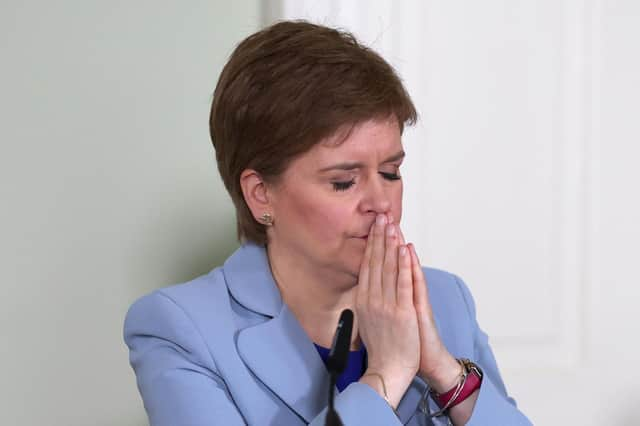Scottish independence referendum: If Westminster keeps saying 'no', what then? Civil disobedience? A war of independence? – John McLellan


Unfortunately, it was the kind of wheeze for which your GP would prescribe a couple of puffs of salbutamol.
If there is a legal expert who thinks there is a realistic interpretation of the Scotland Act which would allow the Scottish Government to go ahead with a second referendum, or anything like one, without consent from Westminster then they have yet to make themselves known, so Ms Sturgeon’s cunning plan is for the UK Supreme Court (led by a Scot, Lord Reed) to tell her what she already knows.
Advertisement
Hide AdAdvertisement
Hide AdIt is indeed novel to ask the Lord Advocate Dorothy Bain to apply to Britain’s highest court for proof that the Scottish Government’s referendum plan is illegal, but at least it avoids the embarrassment of having to tell Ms Sturgeon herself that the proposed referendum legislation is incompetent, or Ms Bain making a case she knows she’ll lose.
As the chosen date of October 19 will be in the middle of the school holidays, it’s safe to presume you can make whatever early plans you want for a half-term getaway, and as a lawyer herself, Ms Sturgeon must have known it was false to promise a vote in 2023.
Stoking resentment against London is her last resort, so it was always likely the SNP would try to turn the next general election into some sort of proxy independence poll, when the 2023 referendum failed to materialise.
The problem is an election will not change the legal position because legislation will still need to go through the UK Parliament, whether for a referendum or actual separation, because elections are a means to gain a mandate for legislation, not a vote on legislation itself.
Advertisement
Hide AdAdvertisement
Hide AdMs Sturgeon says she wants independence to be lawful, so her declaration that the election will be a “de facto” independence referendum is therefore meaningless because to achieve her aim it must be “de jure”, or reflected in law, which it clearly won’t be.
It is also a massive gamble to make the election a single-issue campaign, because those who don’t necessarily want independence but vote SNP ─ as they were urged to do by Ms Sturgeon only last year ─ will no longer have that option, while the Nationalists will be selling austerity on steroids, Mickey Mouse money and hard borders.
But let’s say there is a general election in 2024 and again the SNP wins the most seats. What if the majority back unionist parties, as they did in the 2021 Scottish Parliament election, and in even greater numbers in 2019? If you accept the principle of a “de facto referendum”, it has been rejected twice in the last three years.
Even if the SNP won an overwhelming number of seats, if a new Westminster administration still refuses permission, then what? A campaign of civil disobedience by a party which says it believes in the rule of law? A war of independence as fought by Ms Sturgeon’s new best buddies Sinn Fein in 1918?
Ms Sturgeon’s plan takes us nowhere and Tuesday’s big announcement was little more than an attack of the vapours from a First Minster who knows her race is almost run. Pass the inhaler.
Comment Guidelines
National World encourages reader discussion on our stories. User feedback, insights and back-and-forth exchanges add a rich layer of context to reporting. Please review our Community Guidelines before commenting.

